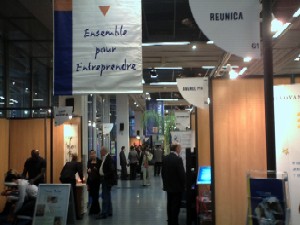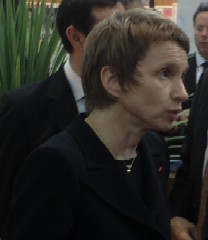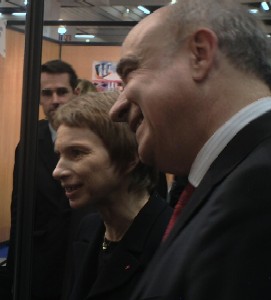
Without using the term crisis, she describes the decline of France: “In the 1960s, our annual growth was higher than the US and the UK, in the 1970s it was equivalent or slightly lower, in the mid-1980s, it became significantly lower. The debt now represents 66% of GDP compared to 30% twenty years ago. If we continue like this, by 2015 the debt will represent 100% of GDP.” Laurence Parisot was addressing an audience very familiar with responsibilities within companies. She had to reassure them and put images to the Medef slogan “Business is life”: “The company has a key role. It is not an isolated island. It lives and sees what happens. We are not blind. Let’s stop pretending a company can do everything. Business is life and like everyone, it is mortal and needs to be nurtured.”
The 35-hour workweek and employment

Reducing unemployment and developing companies remain priorities for Medef as well as for the majority of French people: “We are all concerned about unemployment. Having 10% unemployment for 25 years is a shame and an anomaly. Other countries, like the UK and Spain, have managed to reduce it. To do this, we need to promote debate and exchange. A month ago, I launched social deliberation with the unions. Before negotiating, it is important to see if we can share the same diagnosis. If we are not progressing, it’s because we do not have the same starting point. It’s to better understand each other’s arguments.”
Last idea developed and likely to upset a few: making layoffs easier. Laurence Parisot uses a neologism “separability” and parallels it with divorce: “Until 1975, one could not divorce without the logic of fault. There had to be a culprit. It’s the same in business. Unemployment would decrease if it were easier to separate from someone because of expenses, and companies would hire more. It’s time to explain this to move things forward.”
Medef wants to move things forward. Laurence Parisot has her logic. The unions too. Both will weigh in heavily for the presidential elections. Who will be listened to the most? Answer in a few months.



